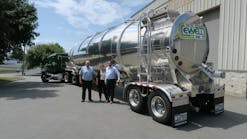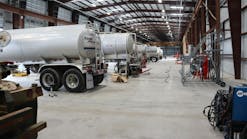Algae holds great potential to provide a high-yield, non-food source of biodiesel, ethanol, and aviation fuels, according to information from the National Algae Association (NAA).
"As a transport fuels feedstock, algae can produce up to 10,000 gallons of biodiesel feedstock per acre per year compared to soybeans at 50 gallons per acre and canola/rapeseed at 120 gallons per acre," according to Will Thurmond, chairman of research and development for the NAA and author of a biodiesel study. "Due to these factors, the US military and DOE (Department of Energy) are aggressively pursuing algae for aviation fuels at the National Renewable Energy Laboratory, the Defense Advanced Research Projects Agency, Sandia National Labs, and major university R&D (research and development) centers."
"The United States cannot grow enough corn and soybeans to wean our nation off foreign oil," said Barry Cohen, NAA founder. "The US military, commercial aviation, and transportation industries now face an urgent need to develop alternative, non-food feedstocks. The advancement of algae-based biofuels is a significant step in the right direction to support efforts for US energy independence. For our next conference in October, the National Algae Association will continue its research and development efforts to accelerate the commercialization of algae markets for biofuels."
Related articles:








